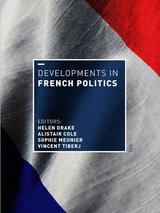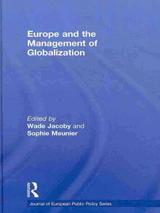A
B
Abstract
decade, advanced economies worldwide have tightened their national investment screening
mechanisms (ISMs) for foreign direct investment (FDI). In March 2019, the European Union
(EU) adopted its first common FDI screening framework. Based on extensive interviews with
high-level EU and country officials involved in the negotiation process, and using a unique
measure of national support for the EU-wide ISM created through the first-ever elite survey on
this subject matter, we find that countries with higher technological levels were more supportive
of FDI screening due to concerns over unreciprocated technological transfer. We also find
sector-dependent effects of Chinese FDI on country-level support for FDI screening: Countries
with high levels of Chinese FDI in strategic sectors are more likely to support the EU ISM, while
those with high levels of Chinese investment in low-tech sectors tend to oppose screening. Our
overall findings suggest that EU investment screening, and national-level screening in general,
might become more restrictive in the future, especially in light of the COVID-19 pandemic.
C
D


Abstract
This article studies the determinants of international bargaining power in instances of trade negotiations between the European Union and the United States. The authors’ central hypothesis is that an appraisal of the US–EU trade relationship requires an understanding of the ways in which “domestic” political institutions shape the bargaining behavior of international actors. In particular, this article argues that the frequent EU “successes” in its negotiations with the US are the result of the bargaining power that its unique institutional arrangements grant its negotiators. In order to explain the distributional outcomes of international trade negotiations, the authors explore the “Schelling conjecture” and analyze why it is particularly relevant to the understanding of the unique bargaining power of EU negotiators when they are confronted with their American counterparts. To examine the explanatory power of domestic institutions in episodes of trade negotiations, the article analyzes the US-EC Uruguay Round agricultural negotiations (1986–1993).
E

Abstract
European policy-makers often speak of their efforts to ‘manage globalization’. We argue that the advocacy of managed globalization is more than a rhetorical device and indeed has been a primary driver of major European Union (EU) policies over the past 25 years. We sketch the outlines of the concept of managed globalization, raise broad questions about its extent, and describe five major mechanisms through which it has been pursued: (1) expanding policy scope; (2) exercising regulatory influence; (3) empowering international institutions; (4) enlarging the territorial sphere of EU influence; and (5) redistributing the costs of globalization. These mechanisms are neither entirely novel, nor are they necessarily effective, but they provide the contours of an approach to globalization that is neither ad hoc deregulation nor old-style economic protectionism.
Abstract
The EU is a formidable power in trade. Structurally, the sheer size of its market and its more than forty-year experience of negotiating international trade agreements have made it the most powerful trading bloc in the world. Much more problematically, the EU is also becoming a power through trade. Increasingly, it uses market access as a bargaining chip to obtain changes in the domestic arena of its trading partners, from labour standards to development policies, and in the international arena, from global governance to foreign policy. Is the EU up to its ambitions? This article examines the underpinnings of the EU’s power through trade across issue-areas and across settings (bilateral, inter-regional, global). It then analyses the major dilemmas associated with the exercise of trade power and argues that strategies of accommodation will need to be refined in each of these realms if the EU is to successfully transform its structural power into effective, and therefore legitimate, influence.
F
Abstract

Abstract
The French Challenge deals with France's effort to adapt to globalization and its consequences for France's economy, cultural identity, domestic politics, and foreign relations. The authors begin by analyzing the structural transformation of the French economy, driven first by liberalization within the European Union and more recently by globalization. By examining a wide variety of possible measures of globalization and liberalization, the authors conclude that the French economy's adaptation has been far reaching and largely successful, even if French leaders prefer to downplay the extent of these changes in response to political pressures and public opinion. They call this adaptation "globalization by stealth."
The authors also examine the relationship between trade, culture, and identity and explain why globalization has rendered the three inseparable. They show how globalization is contributing to the restructuring of the traditional French political spectrum and blurring the traditional differences between left and right. Finally, they explore France's effort to tame globalization—maîtriser la mondialisation—and the possible consequences and lessons of the French stance for the rest of the world.
Abstract
Although culture is not at the heart of the policy agenda of the current French administration, it will likely be affected by the Sarkozy revolution. French culture seems to be in a state of crisis, as evidenced both by the end of its ‘rayonnement’ outside of France and by its diminutive focus on the producers instead of the consumers of cultural goods. The options available for reform can, paradoxically given France’s history of policy opposition to American culture, be inspired by what is done in the United States, as is suggested by Fre´de´ ric Martel’s 2006 book De la Culture en Ame´rique. A reform of French cultural policy would have implications both for foreign and for domestic policies.
